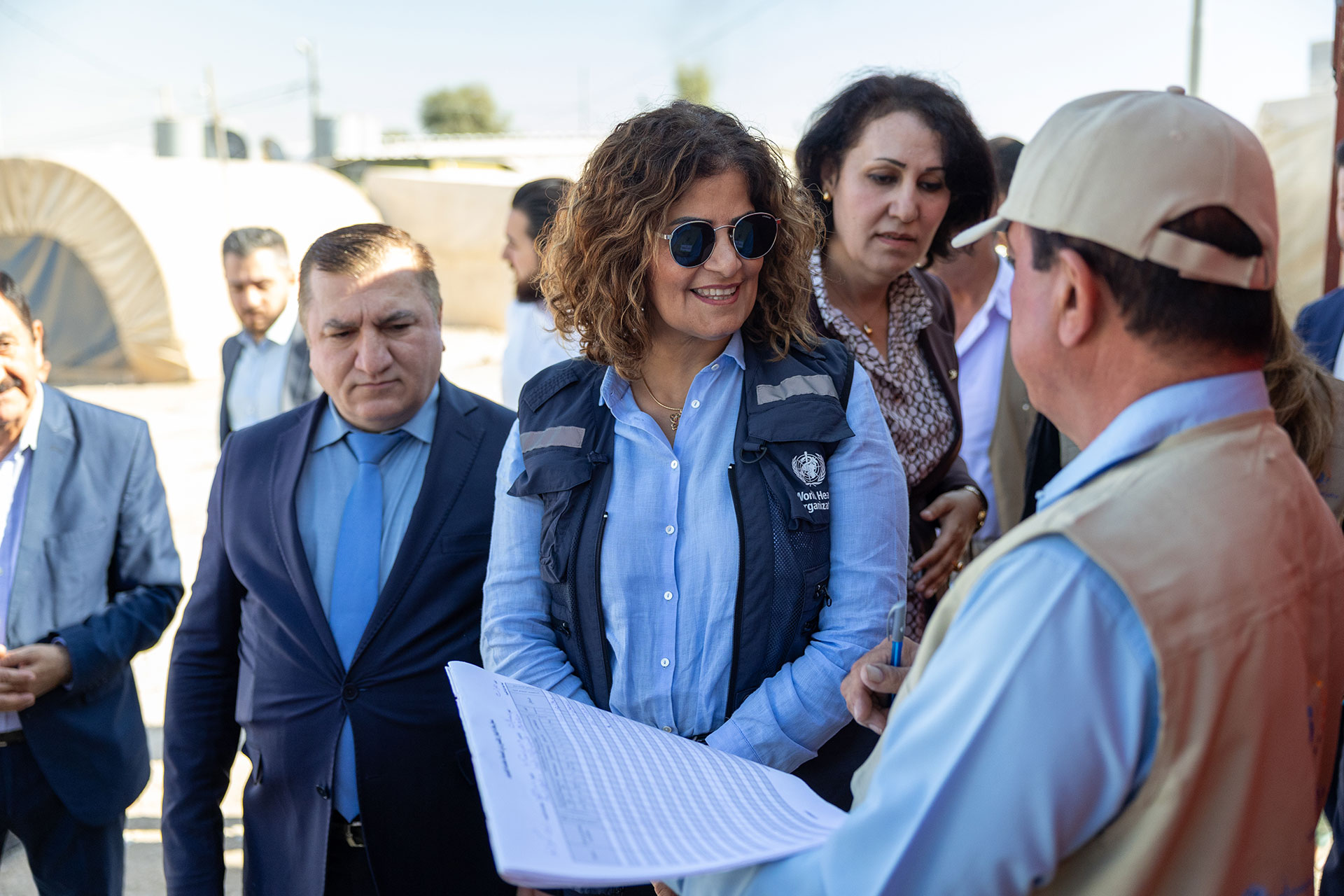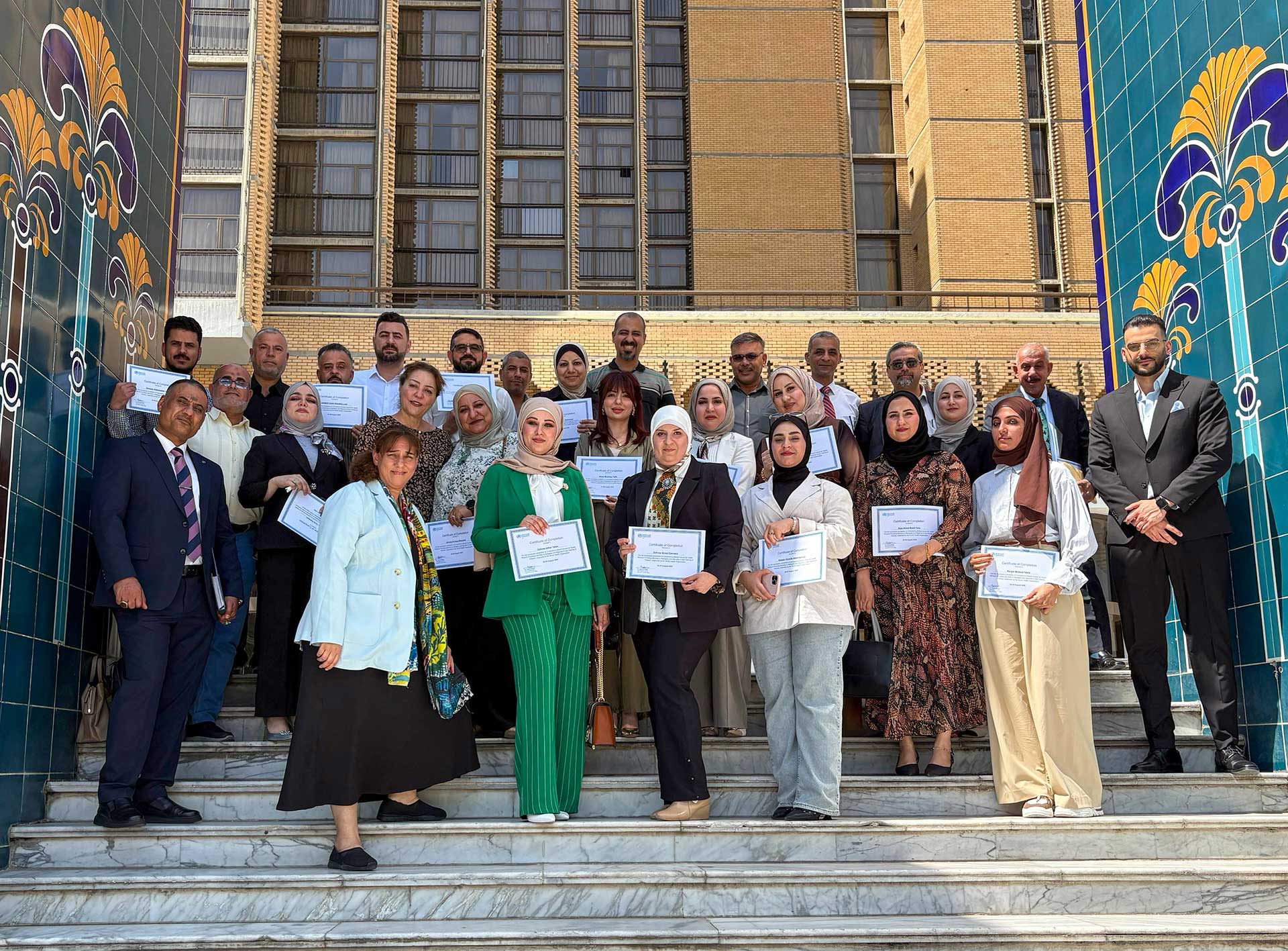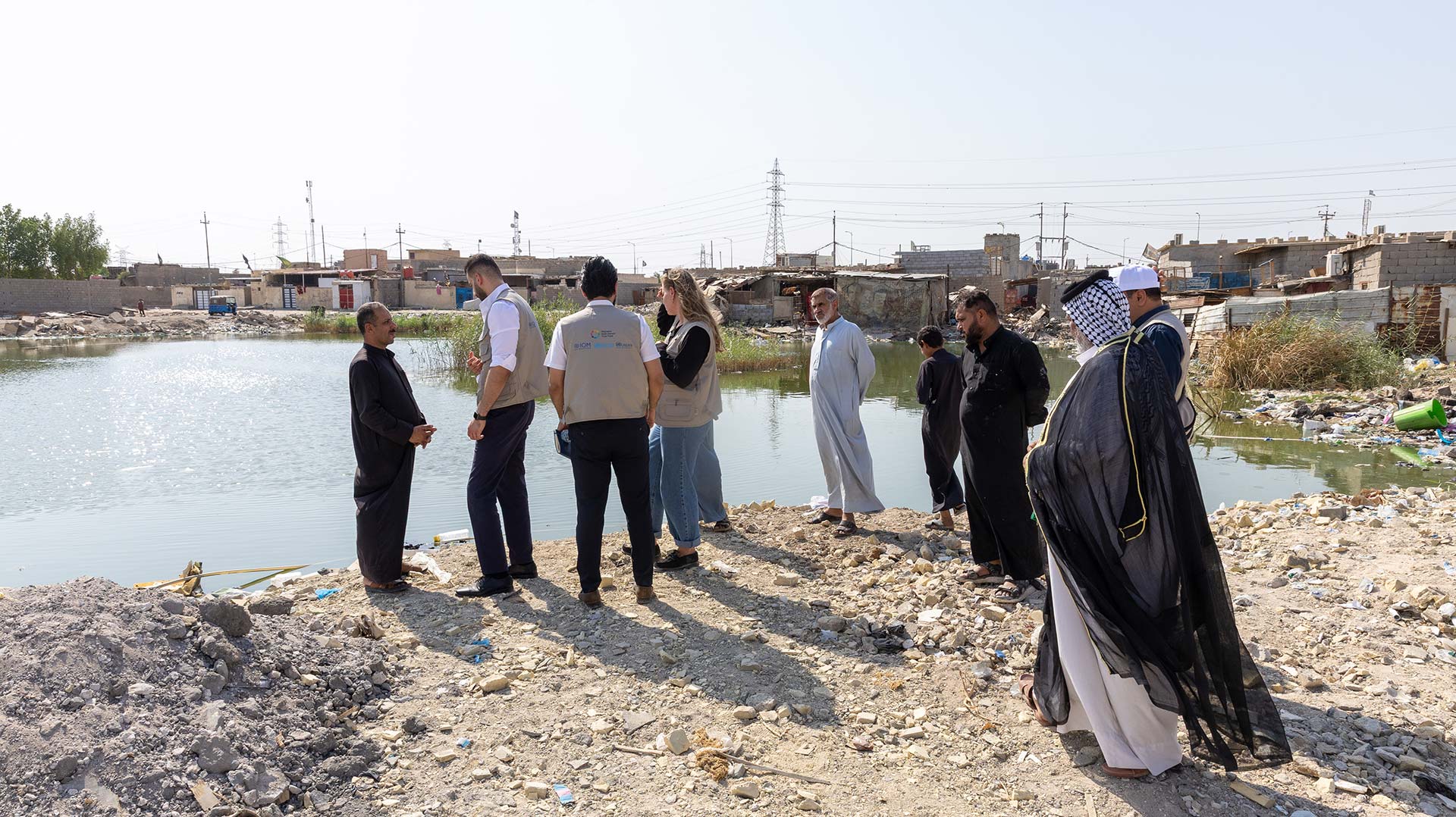 Dr. Jamela Al-Rabie, WHO Representative in Iraq, during one of the field visits16 November 2025 – Through the Harnessing Synergies between Climate Change Adaptation and Risk Reduction in Migrant-Inclusive Health System Responses project, the World Health Organization (WHO), in partnership with the International Organization for Migration (IOM) and the United Nations Office for Disaster Risk Reduction (UNDRR), is supporting Iraq’s efforts to safeguard communities from the mounting health impacts of climate change.
Dr. Jamela Al-Rabie, WHO Representative in Iraq, during one of the field visits16 November 2025 – Through the Harnessing Synergies between Climate Change Adaptation and Risk Reduction in Migrant-Inclusive Health System Responses project, the World Health Organization (WHO), in partnership with the International Organization for Migration (IOM) and the United Nations Office for Disaster Risk Reduction (UNDRR), is supporting Iraq’s efforts to safeguard communities from the mounting health impacts of climate change.
The US$ 3.2 million project, part of the Migration Multi-Partner Trust Fund (M-MPTF), supports the Government of Iraq as it integrates climate change adaptation and disaster risk reduction plans into health policy to ensure host and migrant populations benefit from stronger, more inclusive health systems.
Iraq is grappling with some of the most serious climate conditions in the region. Temperature rises are among the fastest globally. Droughts, water scarcity and dust storms have become more common and severe and are already impacting public health, increasing the incidence of respiratory and waterborne diseases and putting pressure on health facilities and workers. Migrants and internally displaced people are among the most affected.
 WHO organized a Training of Trainers in Baghdad on Global Competency Standards for Health Workers, equipping providers to better serve refugees and migrants affected by climate changeWHO is joining forces with the Ministry of Health, the Ministry of Environment and other national institutions to advance Iraq’s capacity to address the health consequences of climate change through the development of migrant-inclusive adaptation plans, building the skills of health personnel to respond to climate-related diseases and raising awareness among communities on the health risks associated with climate change.
WHO organized a Training of Trainers in Baghdad on Global Competency Standards for Health Workers, equipping providers to better serve refugees and migrants affected by climate changeWHO is joining forces with the Ministry of Health, the Ministry of Environment and other national institutions to advance Iraq’s capacity to address the health consequences of climate change through the development of migrant-inclusive adaptation plans, building the skills of health personnel to respond to climate-related diseases and raising awareness among communities on the health risks associated with climate change.
“Through our partnership with the Government of Iraq, IOM and UNDRR, WHO is working to ensure that Iraq’s health system is resilient, adaptive and inclusive of everyone, including migrants and displaced people,” said WHO Representative in Iraq Dr Jamela Al-Raiby.
“Strengthening the capacity of the health sector to respond to climate-related risks is essential for protecting lives and supporting sustainable development.”
The project benefits hundreds of health workers across Iraq, particularly in areas such as Basra and the southern governorates which are most affected by climate change. Refugees, migrants and host communities living in places exposed to severe conditions such as drought, dust storms and water scarcity also benefit.
 WHO, IOM, and UNDRR, visit to Basra during MMPTFMany health professionals have enhanced their understanding of how climate change intersects with health and migration through the initiative.
WHO, IOM, and UNDRR, visit to Basra during MMPTFMany health professionals have enhanced their understanding of how climate change intersects with health and migration through the initiative.
After taking part in one of WHO’s capacity-building workshops, Dr Nizar Abdulmahdi from the Ministry of Health said the training had deepened his knowledge of climate-related health risks and improved his ability to respond to them in his work.
He noted that the sessions “focused on climate change and its impact on displacement, particularly in Basra and the marshlands, and also addressed the infodemic issue and how to respond to it effectively.”
WHO, in collaboration with the Ministry of Health and the Ministry of Environment, has developed a climate and health action plan for Basra and trained health workers on the links between climate change, migration and health.
Awareness campaigns have targeted migrant and host communities, informing them about the health impacts of heat, water scarcity and air pollution. As part of these efforts, more than 250 students from medical schools in Basra were mobilized through WHO-led risk communication and community engagement (RCCE) campaigns to raise awareness among the people of Basra on the prevention of climate impacts and other public health issues, fostering resilience and informed action at the community level.
Moving forward, WHO emphasizes the importance of integrating mitigation measures alongside adaptation and preparedness actions to reduce emissions from the health sector, promote sustainable and low-carbon health systems and contribute to Iraq’s national efforts to address the root causes of climate change.
These contributions are advancing coordination between the health and environment sectors and accelerating Iraq’s progress towards climate-resilient, inclusive health systems.








